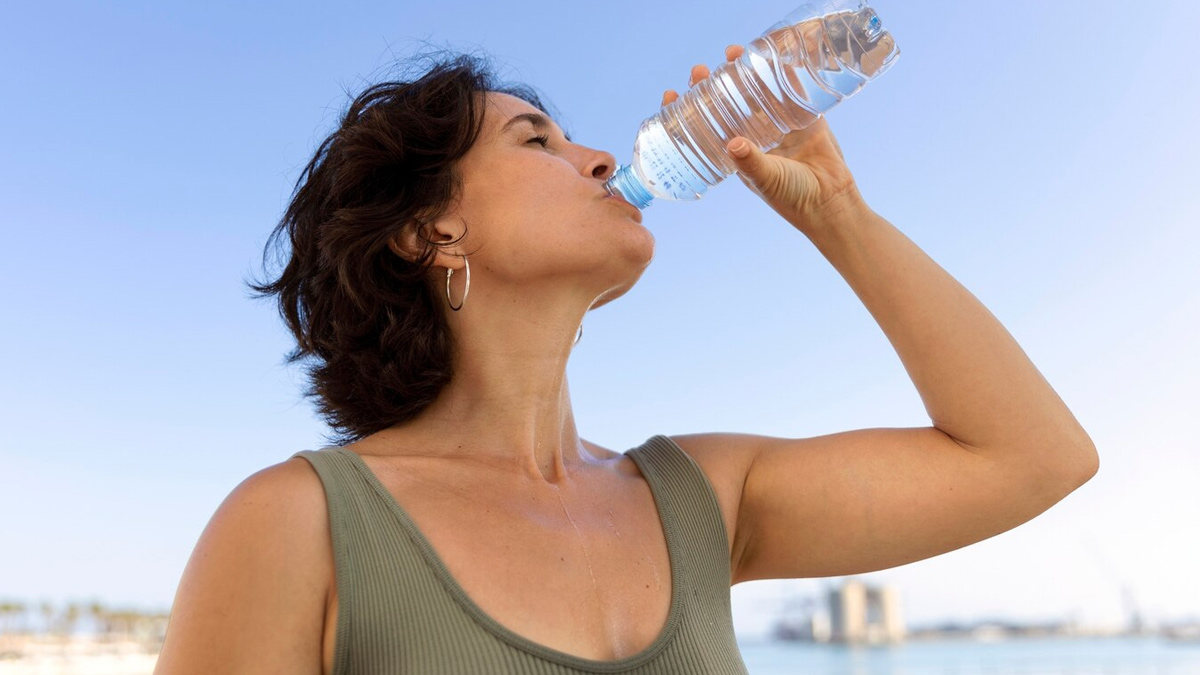
As temperatures rise, the risk of dehydration and heatstroke increases if precautions aren't taken. Heat stroke is a severe condition of heat-related illness and occurs when your body gets overheated and can’t cool itself down. This often occurs when you're exposed to high temperatures or engage in physical activity in the sun without drinking enough water. While we often think about heatstroke affecting our brain and energy levels, there's a vital connection to our kidneys that often gets overlooked.
Table of Content:-
We spoke to Safia Livingston, Dietician (MS RD), Minimal Access Smart Surgery Hospital (MASSH), New Delhi, who explained the link between heatstroke and kidney damage.

"Heatstroke is characterised by central nervous system dysfunction, where the body's core temperature rises above 40°C, whereas the normal core temperature is maintained around 37°C," said Livingston.
Recommended Water Intake
One of the critical roles of hydration in the body is temperature regulation, in addition to digestion, nutrient transport, and joint lubrication. In general, the daily water requirement is 13-15 cups for men and 9-11.5 cups for women.
Calculating Daily Water Intake
There are many ways to calculate how much water a person should consume. A simple method is to multiply your weight in kilograms by 30 to determine your daily water intake.
Also Read: Heatwave Alert: Follow These Tips To Travel Safely During A Heatwave
Adjusting for Physical Activity

In the case of strenuous physical activity or time in the sun, your water intake should be adjusted accordingly. For every 30 minutes spent in the sun or during intense physical activity, it's recommended to drink an additional glass of water to replenish lost fluids and electrolytes.
Impact of Heatstroke on Kidney Health
With the rise of body temperature in a heatstroke, a person is at risk of developing failure of multiple organs and a systemic inflammatory response syndrome. "This can further lead to induced Acute Kidney Injury (AKI). In some cases, it can even lead to Chronic Kidney Disease (CKD). The rise in body temperature causes damage to kidney tubular cells. For individuals with vulnerable kidneys or pre-existing kidney conditions, heatstroke can be even more detrimental," said Dr Livingston.
According to a 2021 study, 25–35% of exertional heatstroke cases develop acute oliguric kidney failure, highlighting the severity of this condition.
Also Read: Hotter Than You Think: Exploring The Link Between Heatwaves And Stomach Issues
Importance of Hydration and Electrolytes

Hydration and electrolytes play a crucial role in protecting the body. Electrolytes are electrically charged minerals that play a key role in maintaining fluid balance in the body. Examples: sodium, chlorine, magnesium, calcium, potassium and phosphorus. These electrolytes maintain pH balance, carry electrical signals from nerves to muscles, and maintain fluid balance. Examples of dietary sources of electrolytes include coconut water, nimbu pani, milk, yoghurt, buttermilk, banana and avocado.
Well-hydrated individuals are metabolically ‘younger’ than their actual age, develop fewer chronic diseases, like dementia, heart failure, stroke, diabetes, high blood pressure, and lung disease, and live longer than those who are not well-hydrated.
What You Should Know
"You should refrain from consuming alcohol and caffeine as it can dehydrate your body. One quick and easy way to determine your hydration status is to check the colour of your urine. A light yellow indicates good hydration, while dark yellow, amber, or brown urine suggests that your kidneys are working hard to concentrate your urine, and your body needs more hydration. This summer, prioritise staying well-hydrated to keep your kidneys healthy," concluded Livingston.
[Disclaimer: This article contains information provided by an expert and is for informational purposes only. Hence, we advise you to consult your professional if you are dealing with any health issue to avoid complications.]
How we keep this article up to date:
We work with experts and keep a close eye on the latest in health and wellness. Whenever there is a new research or helpful information, we update our articles with accurate and useful advice.
Current Version